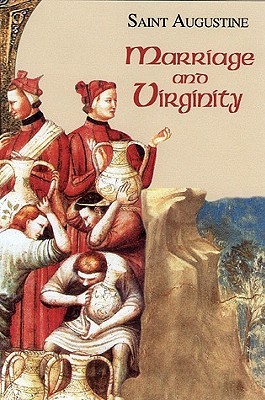- Bible
- Read the Bible
- Bible Versions
- Verse of the Day
- Reading Plans
- Verses by Topic
- Books of the Bible
- Bible Images
- Study
- Commentaries
- Concordances
- Dictionaries
- Encyclopedias
- Sermons
- Bible Atlas & Maps
- BP Wiki
- Devotionals
- Today's Devotionals
- Light of the World
- All Devotionals
- Inspirational Quotes
- More
- Picture Quotes
- Videos
- Inspirational
- Bible Study
- What The Bible Says
- Bible Q&As
- Daily Bread
- Bible by Genre
- Bible Stories
- Random Bible Verse
- Community
- Store
This volume presents new translations of five of Augustine's works: The Excellence of MarriageThe Excellence of Marriage, Holy Virginity Holy Virginity, The Excellence of Widowhood The Excellence of Widowhood, Adulterous Marriages Adulterous Marriages, and ContinenceContinence. These works discuss marriage, sexuality, procreation, and virginity (or celibacy) and their place in Christian life and salvation.
As is often the case, the specific content and direction of these works is guided by Augustine's desire to address and correct what he saw as errors propagated among Christians at the time. Some of these errors promoted marriage over celibacy; while others insisted celibacy is the superior path to holiness. Overall, Augustine strove to highlight the goods of both states of life, and to emphasize that while celibacy might be the "greater good," practicing it does not automatically make one a better person or Christian than someone who is married.
Augustine's opinions and beliefs on these subjects changed over the years before, during, and after his conversion. Presenting his works in chronological order in this volume, therefore, allows the reader to follow the development of his thinking.
As is often the case, the specific content and direction of these works is guided by Augustine's desire to address and correct what he saw as errors propagated among Christians at the time. Some of these errors promoted marriage over celibacy; while others insisted celibacy is the superior path to holiness. Overall, Augustine strove to highlight the goods of both states of life, and to emphasize that while celibacy might be the "greater good," practicing it does not automatically make one a better person or Christian than someone who is married.
Augustine's opinions and beliefs on these subjects changed over the years before, during, and after his conversion. Presenting his works in chronological order in this volume, therefore, allows the reader to follow the development of his thinking.
BUY NOW
Paperback, 254 pages
Published April 1st 2005 by New City Press (first published 400)
© 2025 Bibleportal.com All rights reserved.

Aurelius Augustinus - more commonly "St. Augustine of Hippo," or simply "Augustine" - was a philosopher and theologian, and one of the most important figures in the development of Western Christianity. He framed the concepts of original sin and just war. Augustine was one of the most prolific Latin authors in terms of surviving works, and the list of his works consists of more than a hundred separate titles.
Augustine took the view that the Biblical text should not be interpreted literally if it contradicts what we know from science and our God-given reason. Many Protestants, especially Calvinists, consider him to be one of the theological fathers of Reformation teaching on salvation and divine grace.
... Show more